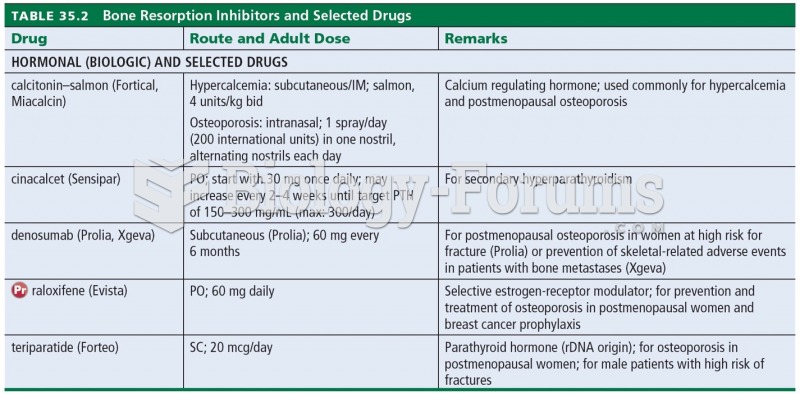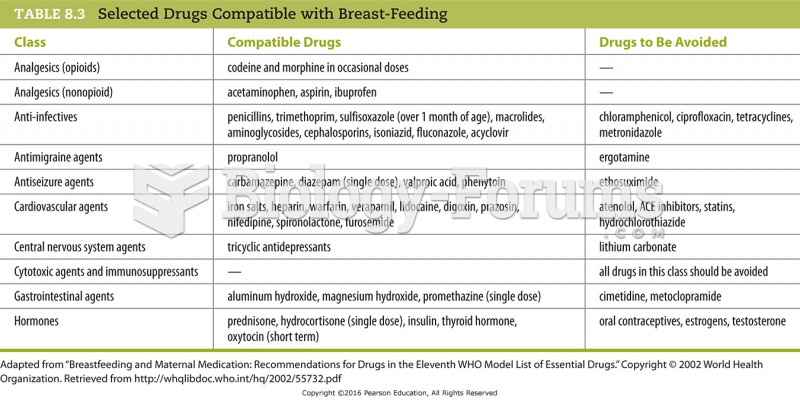|
|
|
The first oral chemotherapy drug for colon cancer was approved by FDA in 2001.
More than 2,500 barbiturates have been synthesized. At the height of their popularity, about 50 were marketed for human use.
IgA antibodies protect body surfaces exposed to outside foreign substances. IgG antibodies are found in all body fluids. IgM antibodies are the first type of antibody made in response to an infection. IgE antibody levels are often high in people with allergies. IgD antibodies are found in tissues lining the abdomen and chest.
The immune system needs 9.5 hours of sleep in total darkness to recharge completely.
The types of cancer that alpha interferons are used to treat include hairy cell leukemia, melanoma, follicular non-Hodgkin's lymphoma, and AIDS-related Kaposi's sarcoma.







